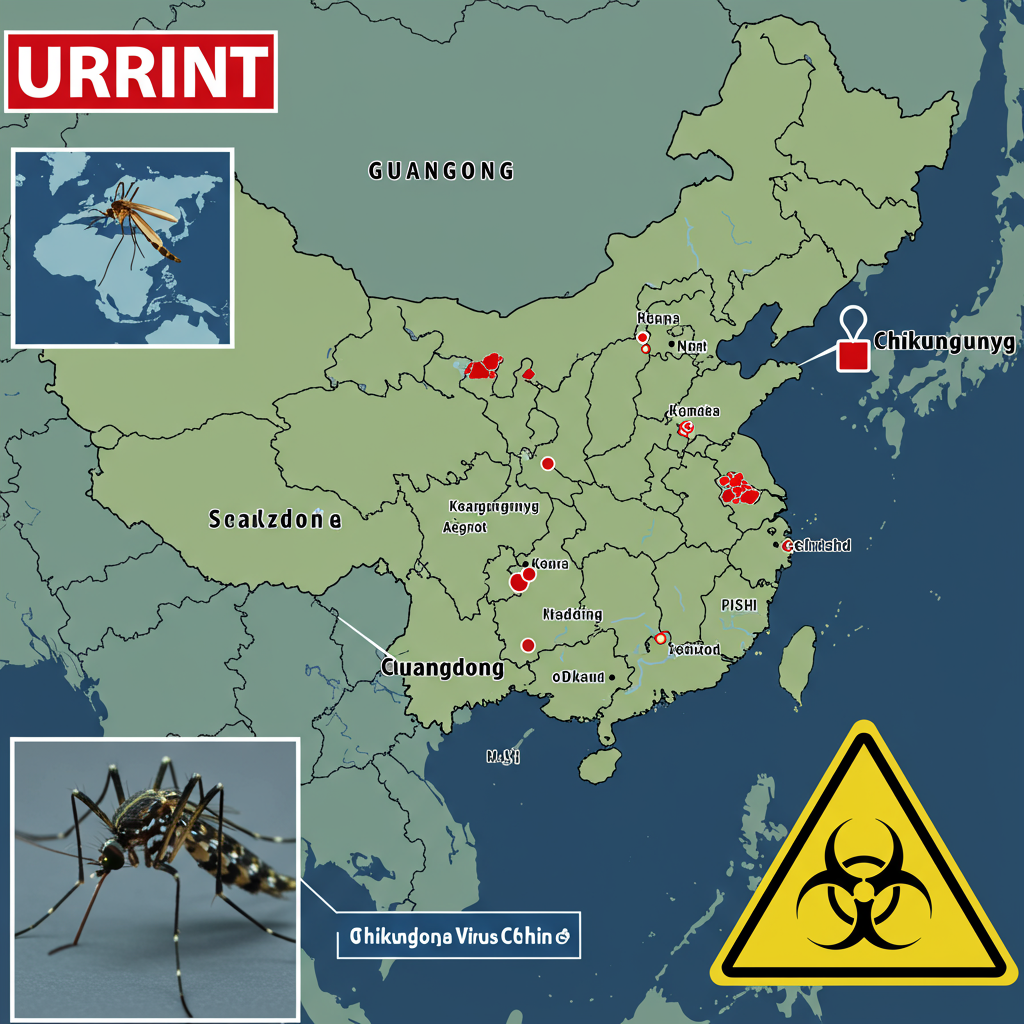Amid a concerning measles outbreak spreading across West Texas, a family seeking crucial protection for their young son faced an unexpected and alarming financial burden. Thang Nguyen, a public health researcher in Galveston, grew worried when cases surged. His 4-year-old son, Anh Hoang, had received only the initial dose of the measles vaccine. Experts recommend two doses for full immunity.
Seeking to complete his son’s vaccination series, Nguyen took his family to a local primary care clinic affiliated with the University of Texas Medical Branch (UTMB). They believed this visit would secure vital health protection. However, securing that protection came with a significant price tag the family hadn’t anticipated.
Unexpected Healthcare Costs Revealed
The clinic visit was standard. Thang Nguyen’s son received not only the second dose of the measles vaccine (part of a combination MMRV shot protecting against measles, mumps, rubella, and chickenpox) but also other recommended immunizations. His twin daughters received their scheduled shots as well. Nguyen recalled asking clinic staff about insurance coverage and being assured it would apply.
Then, the bills arrived. The total charges for the three children’s checkups and immunizations approached an astounding $5,000. Anh Hoang’s care alone was billed over $2,500. The cost specifically attributed to the measles vaccine (the MMRV shot) was listed at $1,422, plus an administration fee. This single vaccine dose cost more than five times its typical price in the private sector.
Why Did Insurance Fail? Examining Coverage Gaps
The Nguyen family’s health insurance policy did not cover these preventive services. Their plan, purchased through a broker and administered by International Medical Group, was significantly less expensive than adding his family to Nguyen’s employer-sponsored plan through UTMB. That job-based coverage would have cost $615 monthly just for dependents. Instead, they paid $1,841 annually for a policy covering emergencies and some care, but explicitly excluding routine checkups and immunizations.
Because Nguyen and his wife are in the U.S. on temporary visas while he pursues postdoctoral research, they were not required to purchase health insurance compliant with the Affordable Care Act (ACA). Most plans under the ACA must cover recommended preventive care, including vaccines, without charging copays or deductibles. Non-ACA plans, like short-term coverage or certain international student plans, often have significant gaps, particularly around preventive services.
This lack of coverage left the family exposed to the full, undiscounted price set by the provider.
Billing Errors Compounded the Problem
The high cost was not solely due to the insurance gap. According to a UTMB official who investigated the issue, a “series of errors” occurred. First, clinic staff incorrectly entered the family’s insurance information. This mistake meant they didn’t realize the plan excluded vaccines and didn’t flag the family for potential assistance programs.
Secondly, UTMB’s own internal price list, known as a chargemaster, contained incorrectly high prices for vaccines for patients not covered by specific programs. This error resulted in the exorbitant $1,400 bill for the MMRV vaccine. While providers set these prices, they are often dramatically higher than rates negotiated with insurers or available through public programs. For comparison, the CDC lists the price of the MMRV vaccine (brand name ProQuad) under the Vaccines for Children Program (VFC) at approximately $278 for the private sector. Pharmacy prices in the Galveston area, tracked by resources like GoodRx, range from about $285 to $326. The $1,400 charge was a clear anomaly.
The Lifesaving Vaccine and Public Health Context
The timing of this incident underscores the critical need for affordable vaccine access. Measles is highly contagious and can be severe, especially for young children. The ongoing Texas measles outbreak highlighted the risk faced by unvaccinated or under-vaccinated individuals like Anh Hoang. Public health experts emphasize vaccination as the most effective tool to prevent the spread of outbreaks.
Federal programs exist specifically to prevent cost from being a barrier. The Vaccines for Children Program (VFC), established after a major measles outbreak decades ago, provides free or low-cost vaccines to eligible children up to age 18. This includes children who are uninsured, underinsured (like the Nguyen family, whose insurance didn’t cover vaccines), Medicaid-eligible, or Native American/Alaska Native. The family should have qualified for VFC assistance, receiving the vaccine free and only owing a small administration fee. However, they were not initially informed about or screened for this program.
Resolving the Bill: A Difficult Negotiation
Facing bills totaling nearly $5,000 on an income below $57,000 annually, Thang Nguyen contacted UTMB’s financial office. Initially, UTMB applied a standard 50% “self-pay” discount offered to uninsured patients, reducing his son’s bill to $1,266, with $711 still attributed to the vaccine. Nguyen found even this reduced amount prohibitive.
The situation gained attention when KFF Health News inquired about the family’s experience. Following this media attention and further investigation into the billing errors by UTMB officials, the clinic eventually waived the cost of the vaccines entirely for all three children. Thang Nguyen’s final revised bill for his son’s visit, including the office visit charge, was reduced to just $202.75. His daughters’ bills saw similar significant reductions.
Actionable Steps to Avoid Surprise Vaccine Costs
The Nguyen family’s ordeal highlights systemic challenges in healthcare billing and insurance coverage, but it also offers crucial lessons for other families. Navigating the complexities of the U.S. healthcare system requires vigilance, especially when dealing with specific insurance types or seeking preventive care like immunizations.
Here are practical steps patients can take:
Verify Coverage BEFORE the Visit: Always contact your insurance provider before scheduled appointments, especially for checkups or vaccinations. Ask specifically if the planned services are covered, if there are any out-of-pocket costs (copays, deductibles), and which providers are in-network. Get specific details about vaccine coverage.
Understand Non-ACA Plans: If you have a non-ACA compliant plan (like short-term or travel insurance), review its benefits summary very carefully. These plans often exclude preventive care, pre-existing conditions, or have low annual maximums. Do not assume coverage for services typically covered by standard plans.
Inquire About Assistance Programs: Ask your healthcare provider or local public health department about programs like the Vaccines for Children Program (VFC). This federal program is a critical resource for ensuring eligible children receive necessary vaccines regardless of their parents’ ability to pay. Many public health clinics offer VFC shots.
Ask About Pricing and Discounts: If you are uninsured or your insurance has significant gaps, ask the provider about their self-pay rates, payment plans, or discounts for uninsured patients. Many hospitals and clinics also have charity care policies for those who meet income requirements. Don’t hesitate to negotiate or inquire about financial assistance.
- Review Bills Carefully: Scrutinize every medical bill you receive. Check for accuracy, compare charges to your explanation of benefits (EOB) from the insurer (if applicable), and question anything that seems incorrect or unusually high.
- www.texastribune.org
Understanding your specific insurance plan’s limitations and knowing what resources are available can help protect your family from unexpected and potentially overwhelming medical bills, ensuring essential care like measles vaccine is accessible when needed.
Frequently Asked Questions
Why did the Texas family face a $1,400 bill for a measles vaccine?
The high bill resulted from a combination of factors specific to their situation. The family’s health insurance plan, a non-ACA compliant policy, explicitly did not cover preventive care like immunizations. This meant they were subject to the provider’s full price for uninsured patients. Compounding this, the clinic made billing errors: they initially didn’t verify the insurance lacked vaccine coverage and used an internal price list (chargemaster) that incorrectly inflated the cost of the MMRV vaccine for non-program patients during a recent update.
Where can families find lower-cost or free measles vaccines in Texas?
Families in Texas whose children are uninsured, underinsured (insurance doesn’t cover vaccines), Medicaid-eligible, or Native American/Alaska Native may be eligible for the federal Vaccines for Children Program (VFC). This program provides vaccines at no cost. Many local public health departments, including those in Galveston County and across Texas, offer VFC immunizations. Providers participating in VFC can administer these shots, typically charging only a small administration fee if any.
What steps should patients take to avoid unexpected vaccine costs?
Before receiving vaccines or other “elective” care like checkups, patients should proactively contact their insurance provider to confirm coverage details and potential out-of-pocket costs. Individuals with non-standard plans (like short-term or travel insurance) must carefully review policy documents for exclusions on preventive care. It’s also crucial to ask the healthcare provider or clinic staff about available assistance programs like the VFC program for eligible children and inquire about self-pay discounts or charity care options if insurance coverage is limited or absent.
The Nguyen family’s experience underscores the critical importance of accessible and affordable public health measures, especially during outbreaks. While their specific billing issue was ultimately resolved due to intervention, it shed light on significant hurdles many families face when navigating healthcare costs without comprehensive insurance, particularly for essential preventive services like the measles vaccine. Protecting children from preventable diseases should not come with an insurmountable price tag.


